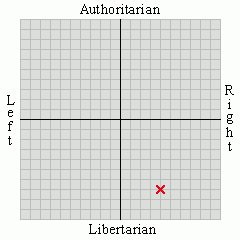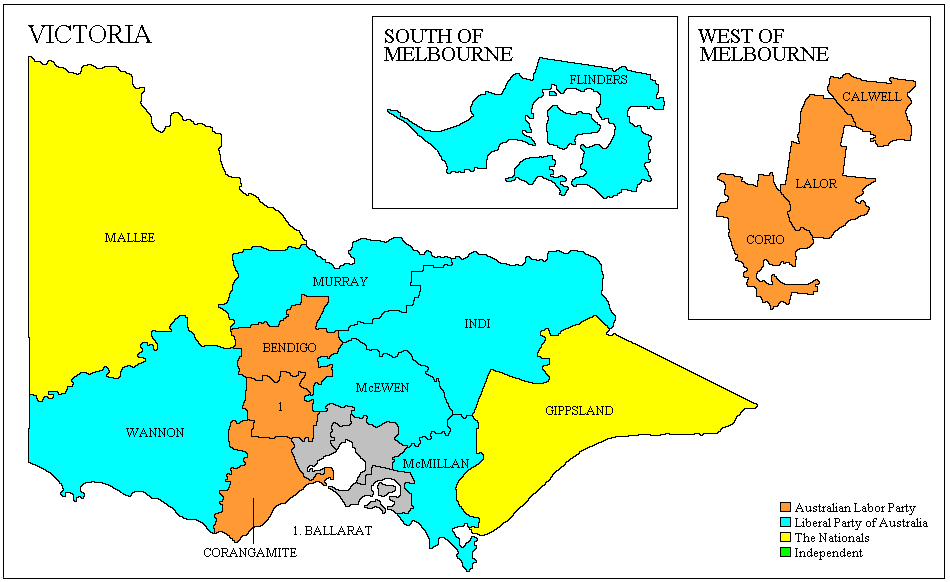Mr Brown said that the switch to the Alternative Vote system could be part of a "new politics" which would restore public trust in Westminster in the wake of last year's expenses scandal.Odd that the prick has been PM for 2½ years and his feckless party has held power for... fucking hell, nearly thirteen, and yet he's never bothered to do anything about this before. Back in 1997 Phony Tony flirted with electoral reform, no doubt expecting a few LibDems to scent a chance of seeing a system which would make their party much more significant in Westminster and switch to labour for a while. But as we all know the Tories simply imploded and it became clear that he had no need, and indeed First Past The Post has suited Labour just fine up till now. It's hard to justify a decade of total inaction from a party that made such a big deal of reform in the run up to the 97 election and apart from tinkering with the House of Lords did nothing once power looked to be safely within their grasp... until suddenly the leader thinks it might buy some votes again. And so far it's worked, buying the support of the LibDems, for whom electoral reform is a particularly loud dog whistle, as well as his own lobby fodder.
The Commons has voted to allow a referendum that could herald the end of Westminster’s traditional first-past-the-post system of electing MPs.It will of course do nothing of the kind. Read on, but be warned: this post is a biggie.
Any Labour rebellion faded away as most of Gordon Brown’s MPs, allied with the Liberal Democrats, passed a vote with an overwhelming majority.
It means if Labour is elected there is likely to be a referendum next year on whether a new method of returning MPs should be brought in.
The Prime Minister has argued that the new Alternative Vote system could help reform Parliament in the wake of the expenses scandal. Under AV voters rank the candidates in preference which means the winner must secure at least 50 per cent of the vote to be returned to Westminster.
However, the bill will not become law before the election. Instead, Mr Brown is likely to put it in a Labour manifesto as part of an attempt to lure Liberal Democrat voters.Told ya. And it's not often I agree with DING but in this instance he's spot on - real reform is needed but the Cyclopean Horror of Downing Street is only interested in a bit of window dressing and fingers crossed for a Pavlovian response from LibDem supporters. The awful part of that is that they know.
The Conservatives voted against the plans. David Cameron has called Mr Brown’s move a “cynical” ploy to deflect attention from the real issue of Commons reform.
Nick Clegg, the Liberal Democrat leader, has accused Mr Brown of having “a deathbed conversion” to electoral reform.As I've settled in Australia, where a form of AV is used to elect federal MPs to the upside down version of the Commons, the House of Representatives, and where we already have a democratically accountable upper house in the form of the Senate, you might expect that I'd support this idea. And you'd be wrong, or at least not wholly correct. It's perhaps not a bad place to start but a solution to the Westminster Augean stables it is not.
A while back I read The Plan by Daniel Hannan and Douglas Carswell, two politicians who seem to be labouring under the misapprehension that they're both Tories (and who'd be among the good guys in my personal fantasy libertarian utopia). For those who haven't read it The Plan is almost a reformer's bible. There are very few things that Hannan and Carswell don't have an idea about how to improve, and with the expenses scandal going on at the time I read it one their points seemed especially apposite. From page 50:
Most MPs’ failings can be explained by a single fact: 70 per cent of constituencies in Britain are the property of a single party. Once in, provided they do not fall out with their local activists, most MPs are effectively irremovable.Funnily enough last May a blogger, Mark Reckons, found a correlation between the safety of a seat and the likelihood that its occupant was a greedy, troughing, nest-feathering arsehole (final version here). Mark Reckons reckoned... uh... he reckoned that this was a good reason to change the system.
This knowledge, naturally enough, skews their loyalty towards their party rather than their constituents. At the same time, it shields them from the consequences of their actions. An MP in a safe seat can vote against the interests of his constituents with something close to impunity. What he cannot afford to do is vote against his whips to the point where he loses the
right to stand in his party’s interest.
If I am right about this correlation then there are surely very serious questions to be asked about our electoral system. Advocates of First Past the Post always claim as one of their main arguments that the constituency link needs to be maintained (even though Single Transferable Vote, a much more proportional system with multi-member constituencies that the Electoral Reform Society and Make Votes Count advocate also has a constituency link). However looking at the above analysis it strikes me that FPTP does not serve its constituents well at all when it comes to this scandal.It's true that the existing FPTP system doesn't serve constituents well and it's also true that AV type systems preserve the constituency link. Under the Australian system I know who my Federal MP is, just as I did when I lived in the UK, and come election time I'll be listing the candidates in my preferred order just as I would in the AV system being proposed for the UK (one slight difference here is that I must number all candidates whereas from what I've read the UK system seems to be one where I may indicate a second and additional preferences if I choose - someone correct me if I've got this wrong). Where the similarities lie is that in both cases I'm wasting my time - not only is it well known that a single vote almost never makes a difference but both the seat where I can still vote in the UK and the one I'll be voting for here in Oz are very safe seats (respectively for the Tories in Britain and the Australian Labor Party here). How can this be? Isn't AV supposed to prevent that? Well, I'm fucked if I know how.
Let me draw you a picture (okay, nick it from Wikipedia). Two in fact.

Those are all the electoral divisions (i.e. constituencies) for the state of Victoria, each having between about 85,000 and 105,000 voters and some being very solidly in the hands of one party. The main section of the first picture shows rural Victoria, and all three ALP seats are marginals. However, Gippsland and Mallee are both extremely safe seats for the National Party, the Liberals' traditional coalition partner. In Gippsland, which they've held since the 1920s, they have a majority of a little over 9,000, and in Mallee - the safest of all coalition seats incidentally - it's just over 35,000. But look at it after the also rans have dropped out and you're counting second preferences and they actually get even safer: Gippsland just shy of 20,000 and Mallee a whopping 35,416. Some UK constituencies, such as that of trougher extraordinaire Elliot Moreley a.k.a The Accused, don't get that many votes cast for all candidates, let alone for one party (oh fuck me, Elliot Moreplease occupies a safe seat, fancy that). You should also remember that in 2007 the Coalition was basically fucked sideways at the election and both those seats had quite a swing towards the Australian Labor Party, yet still they're solid safe seats. For the Liberals the seats of Wannon, Murray and Indi are safe, while McMillan and McEwan are both marginals (McEwan the most marginal in Australia at the moment). Those last two are marginal because of second preferences, both having had larger majorities in the first round - examples of where AV does liven things up. All four seats in the insets are fairly safe for their respective parties.
Taking stock at this point we've looked at 14 seats and found 9 safe and 5 marginals. That's 64.3% safe, or as close to what Dan Hannan and Doug Carswell claim for the UK as makes no odds. Call that improving democracy? Call that greater accountability to the voters? I don't.
Never mind, let's look at the Melbourne metro area. Gorton, Maribyrnong, Gellibrand, Wills, Scullin, Jagajaga, Batman, Melbourne, Hotham and Holt are all moderately to very safe for the ALP, while Melbourne Ports, Deakin, Chisholm, Bruce, Isaacs and Holt are considered marginals despite some being in ALP hands for many years. For the Liberal Party Dunkley, Aston and La Trobe are currently marginals and the other four are thought of as safe. That's 37 seats, 23 of which are safe and 14 of which are marginal, and improves the ratio of safe to marginal, but only very slightly, to 62.2:37.8... and remember that's after a crushing defeat for the Lib/Nat coalition. Aston might otherwise have been considered fairly safe rather than a Liberal marginal. So, a qualified 62% of seats are safe in my state, which not a hell of a lot better than the 70% safe seat claim made for the UK. I haven't had time to check to see if that's representative of the whole country but Victoria being small but fairly heavily populated and representing both rural and urban seats I'd have thought it'd be there or thereabouts. That means AV and similar systems can't be relied upon to solve the problem that is created by seats effectively being the gift of the parties who 'own' them rather than the voters who are supposed to be represented.
Now I'm not saying AV is no good at all and it should be opposed. I'm just saying that despite what Gordon Brown is saying it won't solve the big problem of seat safety, toeing of the party line and the feeling of not really having to answer to the thousands of people you're supposed to represent any more than it can by itself stop the abuse of perks and expenses. After all we know seat safety and troughing tend to go hand in hand, and we now see that AV doesn't get rid of safe seats and may even make them safer still after second preferences. And obviously there's a good chance that the bastard in No. 10 is really after enough LibDem votes to let him cling on to power, possibly as leader of a Lab/LibDem coalition if there's a hung Parliament.
Hannan and Carswell have an answer, but it's nothing to do with AV or preference voting. Or Proportional Representation, which they point out would be even worse, meaning party lists and even more powerful Whips. They suggest the use of US style open primaries:
The best solution to the problem is to give local people a say in who should be the main parties’ candidates. Then, instead of feeling that were being presented with a fait accompli, people would have the opportunity, early on, to identify ‘their’ candidate: the candidate in whose success they felt they had a stake. The British public responded with more interest and enthusiasm to the 2008 US primaries than to political developments within this country. That should tell us something.Yep, not a bad idea, and as applicable to AV systems as it is to FPTP. But there's something else that would help that H&C touch on earlier in the book. On page 23 they mention that in the US recalls can often be used to bring the unreliable, corrupt, incompetent or just unforgivably ugly back to face a fresh election. Why not have that too? Like open primaries it would work with any constituency linked system, and it would concentrate minds even more since a crap politician would know he might not have as long as the next general election before the voters can do anything about him. Say ten thousand signatures, or perhaps a percentage of eligible voters signing, and the constituency itself forces a by election. Between open primaries and recalls seat safety will more or less disappear. Oh, a seat might still be solid Labour or Tory or LibDem due to the local demographic, just as many districts are safely Republican or Democrat in the US, but if the voters force an election the incumbent runs the risk of his party running the primary again to see if they can replace him with someone that hasn't already pissed off the electorate. Even without that the seat would have to be very safe indeed to survive a combination of a large enough number of angry voters to have forced the recall combined with other parties using primaries to allow those same voters to select the strongest possible candidates to stand against the sitting, and possibly shitting, MP.
Primaries developed in the US as a way to keep the parties in touch with the electorate. The American voting system, like the British, is majoritarian, which tends to favour a two-party polity. But in the US, as in Britain, the two parties were not always the same: a progression of Federalists, Whigs, Know-Nothings and others marched across the stage before the current duopoly. what anchored the Republicans and Democrats in place? Open primaries, which ensured that the existing parties adapted to new trends rather than being displaced as a result of them.
Above all, open primaries prevented safe districts from becoming politically stagnant. In the years after reconstruction, most of the old Confederacy was a one-party system in a way unknown in Britain. The Tories have occasionally lost seats in Surrey. Labour sometimes loses seats in Glasgow. But the Democrats never came close to losing the South. This did not mean, however, that their Congressmen could relax. They knew that if they developed a reputation for having gone native in Washington, or if they voted too often against their districts, they would be challenged for the Democratic nomination. Think, for a moment, of how open primaries would concentrate the minds of British MPs in safe seats.
Of course none of this is on the agenda for the UK (or Australia for that matter) and that's a shame. AV is touted as real reform but really it's still just tinkering. It's a clichéd and cynical observation that if voting made a difference the politicians would simply ban it, and while I think that's not quite true it isn't remotely wrong enough. AV is certainly intended to make a difference, but it isn't the one being promised or the sort that Britain really needs.
Coming up: what to do about the House of Frauds, what Britain should avoid copying from the Australian system, and what might be done to decrease apathy and increase voter participation.



















